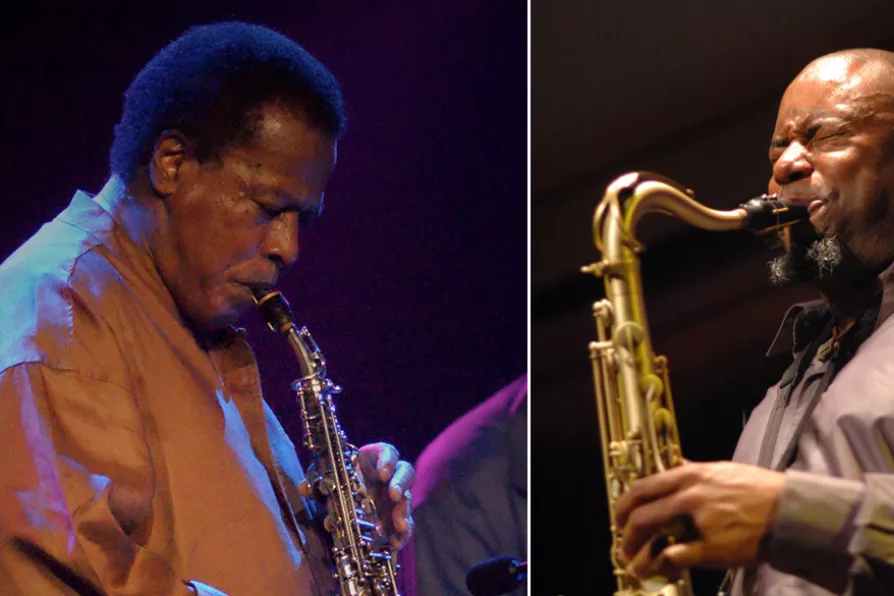MARIA DUARTE reviews Desperate Journey, Blue Moon, Pillion, and Wake Up Dead Man: A Knives Out Mystery

 Wayne Shorter, 2012; Denys Baptiste, 2005
[Dirk Neven/CC; Richard Kaby/CC]
Wayne Shorter, 2012; Denys Baptiste, 2005
[Dirk Neven/CC; Richard Kaby/CC]
HERE’S a story of two powerful and epochal saxophonists, one from the US, the other a Londoner.
The first is Wayne Shorter, born in Newark, New Jersey in 1933, who died in March this year, after a lifetime of jazz invention. The musical director and fiery hornman of Art Blakey’s Jazz Messengers in their most rampaging years between 1959-1963; leader of the series of ’60s insurgent albums for Blue Note, tenorist in one of Miles Davis’s most formidable quintets from 1964 -70, and co-instigator of Weather Report, a pioneering fusion band of electronic jazz.

Re-releases from Bobby Wellins/Kenny Wheeler Quintet, Larry Stabbins/Keith Tippet/Louis Moholo-Moholo, and Charles Mingus Quintet

STEVE JOHNSON, CHRIS SEARLE and TONY BURKE review new releases from Steve Knightley, Jupiter & Okwess, Jason Palmer, Lisa Knapp and Gerry Driver, Kin'Gongolo Kiniata, Ingrid Laubrock/Tom Rainey, Dan Sealey, Simin Tande, PAZ












